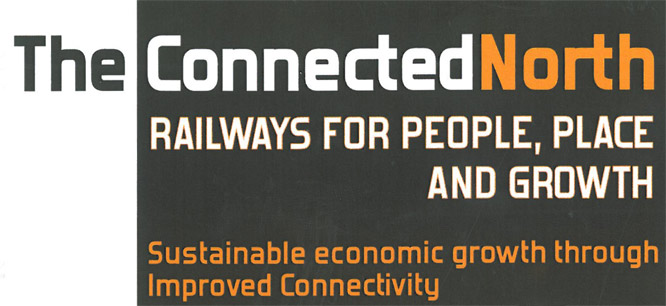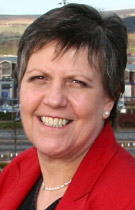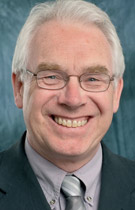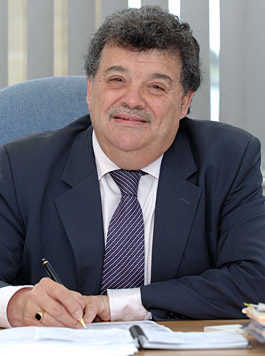The Connected North Rail Conference debates regional rail future

Tue, 29 Jul 2014 13:41:00 BST
Rail conference highlights contrasting views for connecting the North of England
THE University of Huddersfield is established as a hub for research and debate on the future of railways. And the latest topic to come under scrutiny was the Northern Hub – a project to boost the region’s economy with faster, more frequent trains, improved stations and electrification.
Railway insiders, transport experts, politicians, campaigners and business people made up the large attendance at the conference, named The Connected North. It was organised by Landor LINKS and presented by the publication Local Transport Today, which invited the University of Huddersfield to host the event in the wake of a highly successful conference in 2013 that debated the issues surrounding the controversial HS2 North-South rail link.
Keynote Speaker Peter Wilkinson – Director of Rail Franchising
There were more than 20 speakers at The Connected North and a wide range of opinions was represented. The first keynote address came from Peter Wilkinson, who is Director of Rail Franchising for the Department of Transport’s Rail.
He believes that governments should take a much longer term view of railways, acknowledging their importance as an economic asset to the country. He also stresses the importance of sustainability.
“By that I mean that railways are truly connected to the communities they are trying to serve, playing a central role in economic regeneration and creating much better connectivity between regions, not just to London,” he said.
Mr Wilkinson has worked for the rail industry in both the public and the private sectors and he does not want to see railways renationalised.
“People forget just how slow it was to make things happen. Change was very difficult to achieve,” he says, adding that state control was “incredibly bureaucratic”.
“I don’t see any evidence that if we returned to that world it would be any better. There might be a honeymoon period, but once that was over we would regret it.”
Keynote Speaker Julie Hilling MP, Chair of the All-Party Parliamentary Rail Group in the North
 A contrasting perspective comes from Labour MP Julie Hilling (pictured left), who chairs the All-Party Parliamentary Rail Group in the North. Her party is currently drawing up its rail policy, but she says that a Labour Government would not seek to refranchise the East Coast rail service.
A contrasting perspective comes from Labour MP Julie Hilling (pictured left), who chairs the All-Party Parliamentary Rail Group in the North. Her party is currently drawing up its rail policy, but she says that a Labour Government would not seek to refranchise the East Coast rail service.
“I hope we go for more directly operated railways, but I am not sure that is the way we are going to go. We will look at how we get best value for taxpayer and a better service for the traveller.”
Ms Hilling says that rail connectivity in the North is “pretty shocking in some places”, but believes that the Northern Hub would produce real benefits for the entire region, partly by resolving problems in Manchester, which had become a bottleneck.
“We can’t carry on as we are at the moment, with this fragmented system and the real issues we have got with rolling stock. The present government says the market will decide, but we known what will happen when the market decides!” says Ms Hilling. “We must make sure that we get a much better deal from our railways, especially in the North.”
Where now for the North?
 Topics covered in sessions at The Connected North included improving rail connectivity for “second-tier” towns and cities, issues of planning and infrastructure funding and innovative options for new rolling stock on Northern railways. There were talks on community rail and a description of the stakeholder-led regeneration of Wakefield Kirkgate station.
Topics covered in sessions at The Connected North included improving rail connectivity for “second-tier” towns and cities, issues of planning and infrastructure funding and innovative options for new rolling stock on Northern railways. There were talks on community rail and a description of the stakeholder-led regeneration of Wakefield Kirkgate station.
University of Huddersfield Visiting Professor Paul Salveson (pictured left) – a leading regional rail campaigner – led a session entitled Where now for the North and its railways? and the closing keynote address came from David Hoggarth, whom is Director of Development for the West Yorkshire Combined Authority.
 Present at The Connected North was Professor Colin Bamford (pictured right), a transport expert who recently retired as Associate Dean of the University’s Business School and Head of Logistics and Hospitality Management and has received an Emeritus Professorship had the University’s recent Awards Ceremonies.
Present at The Connected North was Professor Colin Bamford (pictured right), a transport expert who recently retired as Associate Dean of the University’s Business School and Head of Logistics and Hospitality Management and has received an Emeritus Professorship had the University’s recent Awards Ceremonies.
“It is very clear that there is a growing interest in railways, in particular their role in regional economies, especially in the North of England,” said Professor Bamford. “Railways are seen as very good value for money in terms of the economic impact they have on communities.”
It was significant that politicians no longer spoke of roads as the engine for growth in regional economies, added Professor Bamford.
“The emphasis seems to be that because of the success of our railway industry – partly due to privatisation – it has to be rail that will enable us to meet sustainable outcomes. Climate change won’t go away and we need to do something about it and running around in metal boxes and being stuck in traffic jams is not the answer! Rail is far more efficient and far more sustainable.”
Professor Bamford is confident that the Northern Hub – scheduled for completion in 2019 – will result in major improvements, reducing journey times and providing greater connectivity for many places in the north.







